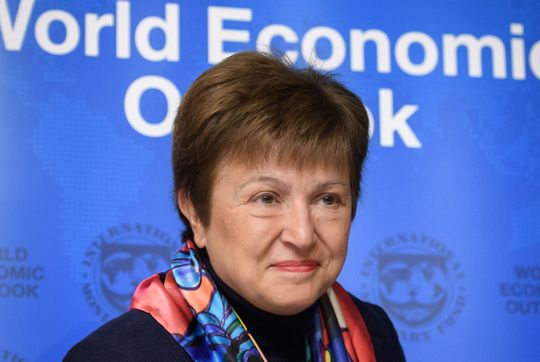Kristalina Georgieva predicts ‘deep recession’ in Russia, but sees little risk of global financial crisis
The head of the International Monetary Fund said Sunday that she expects a “deep recession” in Russia due to “unprecedented” sanctions by the West after its invasion of Ukraine, and that a Russian sovereign default remains a possibility.
In an interview with CBS News’ “Face the Nation,” IMF Managing Director Kristalina Georgieva said the Western sanctions will hit Russia hard, shrinking Russians’ real incomes and purchasing power. And as for a possible default, she said: “in terms of servicing debt obligations, I can say that no longer we think of Russian default as [an] improbable event. Russia has the money to service its debt, but cannot access it.”
“I can say that no longer we think of Russian default as [an] improbable event.”
But she said that for the time being, Russia’s financial problems are unlikely to have major global financial ramifications.
“For now, no,” Georgieva, told reporter Margaret Brennan, according to a CBS News transcript, when asked if Russia’s vulnerability risks sparking a global financial crisis. “When you look at the total exposure of banks to Russia, it is about a $120 billion. Not negligent, but definitely not systemically relevant.”
Still, “war in Ukraine also has social implications for many, many countries,” Georgieva, a Bulgarian economist, said, citing rising energy, grain and metal prices. That is likely to most hurt countries in Russia’s sphere of influence, such as Central Asia and the Caucasus; countries that receive energy exports from Russia; and countries in Africa that still have not recovered from the pandemic and rely on Russia and Ukraine for grain, she said.
Russia’s problems are seen as unlikely to derail the global recovery, though. While the IMF will “inevitably … downgrade our growth projections for 2022, it is still going to be a positive growth rate,” Georgieva said, thanks to “robust” economic rebounds by countries recovering the fastest from the pandemic, such as the U.S.

